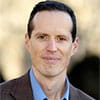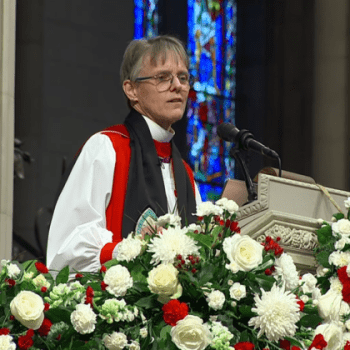 When I was young I remember wanting to fall in love, to have someone that I could show my real self to. I wanted to feel something: what it was like to look into a girl's eyes, hold her hand, kiss her. I felt what Saint Augustine described in his 5th-century autobiographical Confessions: "I was not yet in love, but in love with the feeling of loving." I wanted to feel something, to be desired, to feel valued. What I craved was some mash up of different images culled from books, TV, and movies. I was a boy who wanted to feel like a man, or what I thought a man was.
When I was young I remember wanting to fall in love, to have someone that I could show my real self to. I wanted to feel something: what it was like to look into a girl's eyes, hold her hand, kiss her. I felt what Saint Augustine described in his 5th-century autobiographical Confessions: "I was not yet in love, but in love with the feeling of loving." I wanted to feel something, to be desired, to feel valued. What I craved was some mash up of different images culled from books, TV, and movies. I was a boy who wanted to feel like a man, or what I thought a man was.
An important lesson came after a passionate kiss, just like I'd seen in the movies. Sue later told me that it was really a pain in the neck, quite literally. I was taller than she. I was embarrassed; my image of love wasn't love, but a fantasy, a facsimile of love. The experience made me ask a hard question: how can I really love her, and not just some image I have in my head?
I slowly learned how to truly love from sharing the warp and woof of her life: her pain, her struggles, her hopes and dreams. Real love was not about enacting some fantasy, but being present to a real, enfleshed person. It was about choosing not to go after feelings, but after substance. And while at times entering the real contours of another's life was difficult, over time the substance has yielded joy.
Sue and I have been married for close to eighteen years. In those early years we were building the raft even as we were floating on it, but we helped each other learn how to love. At each stage of our lives we have had to rediscover how to love the other, because at each stage there are new challenges and experiences that call forth the work of loving. We cannot rest content that the ways we loved last year will be enough today.
Now that I am older and have felt what it's like to fall in love, I understand that the desire to feel something is not enough. It does not heal hearts, does not issue forth in creative self-giving, does not always seek the good of the other or even promote the good of the self.
Today I understand love as the constant call to imagine possibilities, to seek a common good and to discover new dimensions of myself in the process. It is not a false martyrdom, a false messiah complex. It is rather like a process of discernment, of seeking that which brings forth mutual hope. It is a practiced skill, not unlike driving or riding a bicycle: responding to new situations with practical judgment. And while sometimes love is a fairly mundane practice, like making coffee or just being a good listener, every now and again it produces epiphanies, moments of great joy that remind me that practicing love is participating in a drama larger than myself.
I have spent much of my academic life studying the history of Christian spirituality, at the root of which is a bedrock truth: we find God in holy desire. Learning how we desire is, I think, the greatest task of the spiritual life, and conversely failing to learn how desire works is the surest road to misery. On this point I am impressed by the Buddhist tradition, which sees desire as the root of suffering. The Buddha was right: desiring the wrong way leads to addictions, hatreds, false senses of self, violence, maybe even depression. My Christian tradition reads a slightly different point, though: that desire is also the road to joy. And discerning desire is the task of learning how to love.
Jesus said that the one who would seek his life would lose it, while the one who loses his life will preserve it (Lk. 17:33). I've learned that seeking to satisfy a desire may be the beginning of love, but real love grows only when it transcends my desires. I must be ready to "lose my life"—that is, to let go of the limited way I understand my life in order to grow with the one I love.
Some desires point me toward ways to love more creatively. But others are just rooted in my unfree cravings. On my better days, I recognize when my desires are limiting me. On worse days I remain limited by those desires. One of the reasons I pray is that I hope to become better at discerning good desires that lead to growth, and bad desires that lead to stagnation or even sin.
A translator of Aristotle's Nicomachean Ethics, Joe Sachs, used an image for the virtuous life that I find helpful. A sheep dog, he wrote, finds the right balance of being too close to the sheep and too far away. If it's too close, it scares them and sends them running. If it's too far away, the sheep wander off and scatter. The good sheep dog is vigilant, constantly adjusting his position. I think love is like that: vigilant, building upon past lessons yet always seeking new approaches. It is wise, yet it is also creative.
One of the reasons I believe in God is that I find in the experience of love an expansive freshness. I am surprised by love. I follow Thomas Aquinas: he who loves, loves God. My prayer this Valentine's Day is not that everyone finds their heart's desire, for our desires can sometimes be selfish and limited by what we allow ourselves to imagine. But I do pray that everyone loves, for loving expands our imaginations and gives our lives meaning.
2/8/2011 5:00:00 AM





